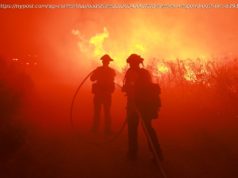The special counsel stopped short of declaring whether acts by the president were illegal attempts to impede the investigation. But his report is a detailed map to conclusions.
WASHINGTON — The report by Robert S. Mueller III, the special counsel, explored about a dozen episodes in which President Trump’s actions raised concerns about obstruction of justice.
Mr. Mueller stopped short of concluding whether Mr. Trump committed that crime, but the report made clear that others can use the evidence to make that call. Mr. Mueller’s investigators made an oblique reference to possible impeachment proceedings and noted that after Mr. Trump leaves office, he will lose the temporary immunity the Justice Department says sitting presidents enjoy. Mr. Mueller cited that factor as barring him from making accusations now.
The report evaluated the evidence based on three criteria: The act must be obstructive, linked to an investigation and undertaken with a corrupt motive. Investigators also explored countervailing evidence that Mr. Trump’s lawyers could use to argue that the acts fell short of a crime.
Mr. Mueller also devoted over a dozen pages to rebutting a sweeping argument offered by Mr. Trump’s lawyers — and Attorney General William P. Barr, who has said he believes Mr. Trump did not violate obstruction laws: that Congress cannot make it a crime for a president to abuse his official powers to impede an investigation.
Here is a look at several of the more significant events the report explores:
After learning in June 2017 that he was under investigation for obstruction of justice, Mr. Trump ordered the White House counsel Donald F. McGahn II over the phone to have the Justice Department fire Mr. Mueller based on the president’s views that the special counsel had conflicts of interest. Mr. Trump backed off after Mr. McGahn refused to carry out the directive and prepared to resign in protest. [Reference: Vol. 2, Pages 77-90]
Obstructive?
Potentially. While acknowledging that removing him would not have prevented the investigation from continuing, Mr. Mueller wrote that such an act nevertheless may have “had the potential to delay further action in the investigation, chill the actions of any replacement special counsel or otherwise impede the investigation.”
Linked to an investigation?
Yes.
Improper intent?
Yes. Among other things, the report cited evidence that Mr. Trump “knew he should not have made those calls” because Mr. McGahn had warned him he should use his personal lawyers to submit any conflict complaints, not use his official powers to remove the special counsel.
Bottom line: While Mr. Mueller hedged a bit on the first of the three criteria, the report suggests there is sufficient evidence to ask a grand jury to consider charging this act as illegal obstruction.
Mr. Trump’s attempt to fire Mr. Mueller came to light in news reports in January 2018. Mr. Trump repeatedly pushed Mr. McGahn to state that the president had not directed him to fire Mr. Mueller and to write a memo “for our records” denying the reports. Although Mr. Trump threatened to fire him if he did not comply, Mr. McGahn refused, saying the articles were accurate. [Vol. 2, Pages 113-120]
Obstructive?
Potentially. By pushing Mr. McGahn to issue a statement and create a written record denying facts that he knew Mr. McGahn believed to be true, Mr. Trump’s action “would qualify as an obstructive act if it had the natural tendency to constrain McGahn from testifying truthfully or to undermine his credibility as a potential witness if he testified consistently with his memory, rather than with what the record said.
Start
United States
USA — mix Did Trump Obstruct Justice? Mueller Didn’t Say, but Left a Trail to...






